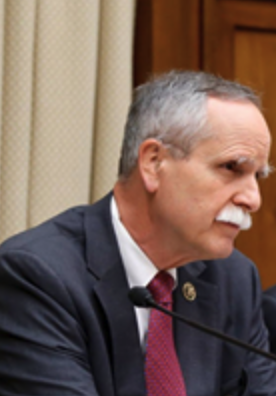WASHINGTON, D.C. — Today, U.S. Representatives David B. McKinley, P.E. (R-W.Va) and Peter Welch (D-Vt.) reintroduced bipartisan legislation that will incentivize specialty physicians to practice in small communities by forgiving their student loans in return for a commitment to practice in rural areas for 6 years.
“Expanding access to critical health professionals in rural communities remains essential to supporting the health and well-being of Americans nationwide,” said Rep. McKinley. “In many parts of the country there is a shortage of doctors in specialty areas, which reduces the access to care. Patients are forced to drive long distances simply to get the care they need – or worse, they forgo needed treatment. This bill will help improve quality of life for people in small communities across the country.”
“Too many rural communities are far away from the specialists that they need. They shouldn’t be forced to travel more than an hour just to bring their children to a pediatric specialist or other specialty physician,” said Rep. Welch. “This bill is a common sense solution that would put more specialist doctors in rural communities while helping those doctors pay back loans that they needed to take out to finance years of expensive medical education.”
The American Urological Association have also praised this bill, claiming it was “vital in addressing the lack of access to specialized care for rural Americans.”
“This legislation reintroduced by Representatives McKinley and Welch is vital in addressing the lack of access to specialized care for rural Americans. With only two percent of all practicing urologists working in a small town or rural setting, and with over a quarter of those urologists being within 10 years of retirement age, it is imperative that we address this workforce shortage now,” said Eugene Rhee, MD, Chair of the American Urological Association.
Background:
The Specialty Physicians Bill directs the Health Resources and Services Administration (HRSA), a department under the U.S. Department of Health and Human Services (HHS), to carry out a loan repayment program for certain specialty medicine physicians who provide care in rural communities with shortages of such physicians.
Physicians participating in this program must agree to 6 years of service and, for each year of such service, HRSA will pay one-sixth of the principal payment and interest on eligible loans up to $250,000.

